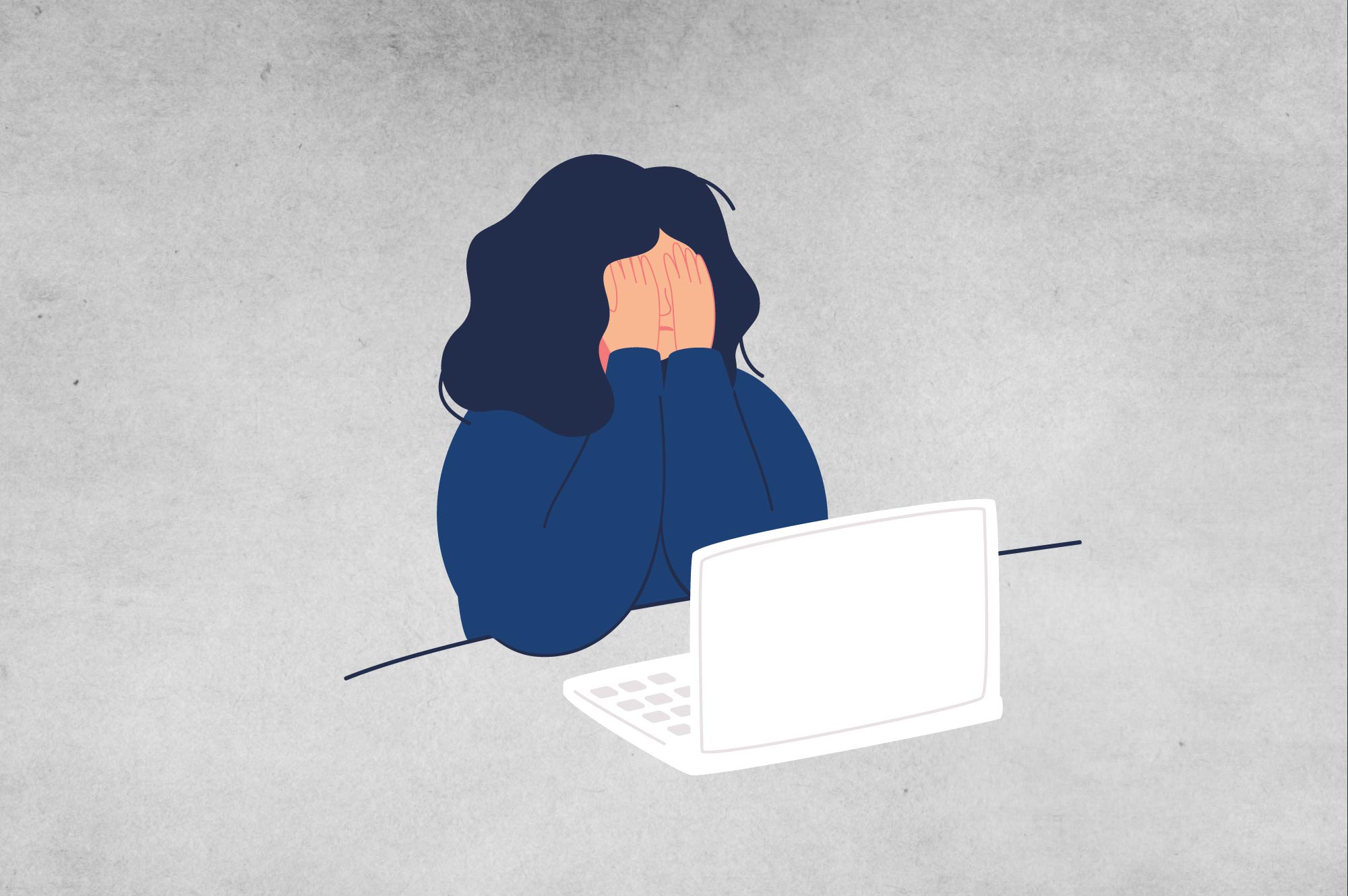Find the latest information on the University’s response to the coronavirus here.
Bethany Teachman is a University of Virginia professor of psychology, a licensed clinical psychologist – and, most importantly these days, the leader of the University’s Program for Anxiety, Cognition and Treatment Lab. She has created online tools that help people manage anxiety and her work has been featured in various press outlets, including Bustle, The Hill, Real Simple and Business Insider.
UVA Today reached out to Teachman to get her insight into how people can manage any anxiety they may be feeling as a result of the novel coronavirus, which first appeared in Wuhan, China, late last year and is spreading across the globe. Now that UVA’s classes are moving online for the foreseeable future, Teachman also has practical suggestions for students at UVA and other colleges and universities.
Q. The novel coronavirus and the illness it causes, COVID-19, are inspiring a lot of fear around the world. In the 1980s, it was HIV; in the early 2000s, SARS, or severe acute respiratory syndrome; and later in 2014, Ebola. How does anxiety present during times of global crisis like these?
A. It is natural for people to experience fear and anxiety in response to COVID-19. Key ingredients that contribute to anxiety are a sense of uncontrollability and unpredictability, and the current situation is high on those characteristics because we’re still learning a lot about how it spreads and its impact in different communities. As a result, the uncertainty we feel fuels anxiety because we wonder if we’ll be able to respond effectively to the threat. That’s why it’s important for us to attend to information from reliable sources and to keep in mind that while uncertainty makes us feel anxious, that doesn’t mean we should assume the worst. For instance, the University is taking strong preventive measures right now (e.g., moving classes online), but that does not mean we are suddenly under increased threat; rather, the University is helping to increase safety and protect health in a proactive way so that we are less likely to have to contend with riskier situations down the road.
Humans tend not to be very good at tolerating uncertainty, especially people who are prone to anxiety, so we need regular reminders that feeling some anxiety is natural in this situation, and we need to take steps to control the components of the situation we can (e.g., washing hands regularly and following travel advisories) while also intentionally taking breaks and focusing on other parts of our lives.

Bethany Teachman is the leader of the University’s Program for Anxiety, Cognition and Treatment Lab, a professor of psychology and a licensed clinical psychologist. (Photo by Dan Addison, University Communications)
Q. Every hour, there is more news about how COVID-19 is spreading and the measures locales are taking to contain the outbreak. What can people do to stay informed but not get overwhelmed by the fast-moving outbreak?
A. This is a challenging situation because it is rapidly evolving. I encourage people to choose a select number of trusted news sources, such as the Centers for Disease Control and Prevention (CDC) and the Virginia Department of Health, and check those sources at set times (e.g., twice a day), and then focus on other activities. There is a balance that needs to be struck between staying informed in order to take appropriate preventative measures while not becoming obsessed with every news story and rumor, so that your day is spent refreshing news screens and spiraling into more and more catastrophic thinking.
During stressful times, some of the best things we can do involve maintaining self-care (e.g., getting good sleep, eating well, taking breaks to exercise, drawing on social supports) – this basic self-care helps people to both maintain good health and have the energy they need to manage challenges should they arise and make wise choices.
“We need regular reminders that feeling some anxiety is natural in this situation, and we need to take steps to control the components of the situation we can.”
A component of the treatment for some anxiety disorders involves setting a “worry time” so that people focus on the issues that concern them and do appropriate problem-solving, but don’t let worrying take over their whole day (and night!). It doesn’t work well in a sustained way for most people to simply tell themselves not to think about COVID-19 (or any other serious stressor); instead, we can select the times each day when we will review the relevant news updates and consider if we are following their prevention and preparedness recommendations (and make any needed changes based on those recommendations). I’d suggest setting two times each day.
At other times, we can focus on the things we value and attend to our current activities, especially activities that give us a sense of accomplishment or give us pleasure. Mindfulness exercises, for instance, can help us stay grounded in the present moment to help manage a whirlwind of frightening thoughts. Similarly, re-evaluating catastrophic thinking to consider other perspectives can help people distinguish between the current reality and their imagined worst possible outcomes. Using healthy strategies like these, rather than trying to reduce anxiety in unhealthy ways (like drinking alcohol excessively), is key to long-term management during stressful times.
There are lots of online apps that can provide relaxation, mindfulness exercises, supports to address insomnia, or guidance in how to re-evaluate anxious thinking. In addition, our lab is testing MindTrails, a free, online intervention to help reduce anxious thinking.
There are also many national and local distress lines that can provide some immediate support, as well as helpful links to find a therapist if anxiety has become more chronic and is impairing functioning in an ongoing way: see this resource list.
Q. What about anxiety provoked by the plummeting stock market and fears of a recession? People’s retirement savings are being threatened. How can people manage their anxiety about this?
A. As with the health-related fears about COVID-19, it’s important to seek accurate information from reliable sources and follow recommendations from trusted experts; in contrast, it’s not helpful to get sucked into reading and rereading every story and rumor that emerges.
“There is a balance that needs to be struck between staying informed in order to take appropriate preventative measures while not becoming obsessed with every news story and rumor.”
Getting advice from trusted financial consultants – as opposed to making impulsive, panic-driven decisions – is more likely to result in decisions that people will feel good about in the long run. We cannot control many aspects of what is happening with COVID-19, and its health, economic and social impact, but we can think carefully about how we want to make decisions, and who has the training and expertise to provide helpful advice that we respect. If we are following those steps, then our challenge is to spend the rest of our time living our lives as normally as possible.
Q. How can people practically manage their anxiety while trying to go about their daily lives, including going to work and managing a household that might include young children?
A. The current advice in our community is to wash hands regularly and avoid touching faces, practice “social distancing” to reduce physical contact with others (a big part of the reason for moving classes online), not to go to work or school if we are sick (and cover coughs and sneezes), avoid touching others (e.g., don’t shake hands) or try the elbow bump to reduce the risk of infecting others, clean surfaces that are touched regularly, and review travel advisories based on the Centers for Disease Control and Prevention recommendations. These are concrete steps we can each take to help keep ourselves and others healthy.
“Make sure to still connect with others. … This is especially important given so many students will be separated from their usual peer support systems.”
Taking lots of steps beyond those that are recommended can actually have negative effects on others (e.g., by depriving others of supplies that are needed if we overstock items) and ourselves (e.g., by escalating our fear and making it harder to distinguish between reasonable prevention measures and panic-driven measures that follow from intolerance of uncertainty).
So, the recommendations to manage anxiety are to:
- Attend carefully to self-care: healthy eating, sleep, exercise and seeking support from loved ones and friends.
- Stay informed by checking in with reliable news sources.
- Seek updates a couple times a day, but don’t spend all day obsessively reading about COVID-19.
- Consider whether you are following the local, recommended prevention and preparedness measures, and adjust accordingly.
- Be careful before taking additional preventive measures beyond those that are recommended as they can often be counter-productive and fuel anxiety.
- Focus on activities you value – ones that are fun or relaxing, or that allow you to feel like you’re accomplishing things you care about.
- Make sure to still connect with others, even if it’s happening virtually, because social isolation can fuel negative mood and make it much harder to manage the natural sadness, confusion and anxiety we feel during stressful times like this. This is especially important given so many students will be separated from their usual peer support systems.
- Establish routines – many students are going to be at home (i.e., away from Grounds) or living in Charlottesville, but without their typical friends and colleagues around them. This can feel strange and mean many of the routine activities we’re used to will be disrupted (e.g., no more Tuesday night soccer games). Most of us benefit from some structure, so wherever you are staying during this time, look for ways to establish routines so that you don’t feel “adrift.” So, instead of having the Tuesday night game, schedule a regular Tuesday night virtual get-together with your soccer teammates. The more of your life that feels normal, the better.
- Don’t lose site of your values! For instance, be watchful for perpetuating or tolerating racism toward groups because of concerns a given group may be at higher risk of exposure to COVID-19 (e.g., say something if you observe racism toward persons who are Asian, Asian American or European because of fears tied to COVID-19).
Remember that some anxiety in this situation is normal but if anxiety feels like it is “taking over” and making it very hard to function, seek help.
Media Contact
Article Information
March 12, 2020
/content/expert-offers-practical-advice-manage-your-coronavirus-anxiety

